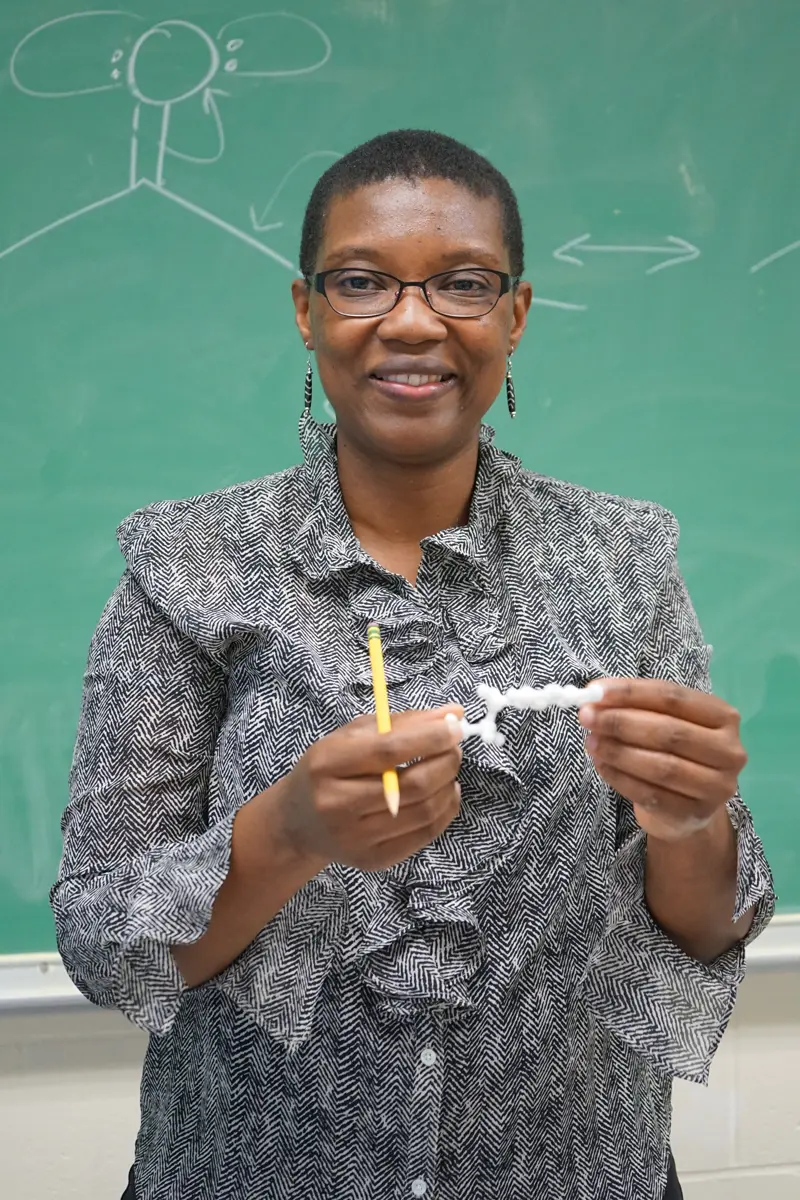Khalilah Reddie came to campus with one mission: to teach organic chemistry and teach it well.
After earning a Ph.D. in chemistry from the University of Georgia, Reddie did research at Georgia Institute of Technology and the University of Michigan Life Sciences Institute. But she also taught classes as a lecturer – and found a passion for teaching that outstripped her interest in research.
Organic chemistry is a difficult class, and before Reddie arrived at UMass Lowell in fall 2012, about 55 percent of students completed it. But Reddie, a full-time lecturer, has changed that by experimenting with different approaches to see what works. Now, 85 percent of students complete the course.
“I’m a scientist, and I just look at the deficiencies the students have and try to fill them,” she says. “I ask them to enjoy it and do their best. And I lead by example, because I work really hard for my students. It makes them want to work hard for themselves.”
In 2015, Reddie won the Faculty Award for Teaching Excellence. She says she has received great support from her colleagues, her department, the Centers for Learning and Academic Support Services (CLASS) and university administrators, who have awarded her two Transformational Education mini-grants.
She and Jessica Garcia, who runs the organic chemistry lab sections, used the first grant of $5,000 to buy 15 iPad minis loaded with software that allows students to visualize molecules and predict how they will interact with other chemicals. The Chemistry Department bought another five iPads for use in the labs.
The second grant, for $2,000, helped Reddie buy a test scanner to use at CLASS. Working with 10 hand-picked student tutors, she arranged for the Centers for Learning to extend its hours before each quiz and exam. Her students can come in, take a multiple-choice practice test and quickly run it through the scanner for a “grade” – and address any gaps with a tutor before the real test.
“We need to give students an opportunity to see what they really know before the exam. Studying by themselves isn’t good enough if they don’t get feedback on it,” she says.
Her other classroom aids are low-tech, but they’re effective hands-on tools. She goes to every class with a suitcase containing 100 small whiteboards and markers for drawing molecules, along with 3-D plastic models of important organic molecules, made for her by Assoc. Prof. Matthew Gage on a 3-D printer. She walks around the classroom giving students instant feedback on the molecules they’ve drawn.
Reddie likes feedback herself. She uses comments from her students and the tutors to improve the course. She never gets tired of trying new approaches, or fine-tuning old ones.
“I take the student evaluations very seriously. I go through them and look at the comments, and I try to change things based on that, so teaching organic chemistry doesn’t become old at all,” she says.


